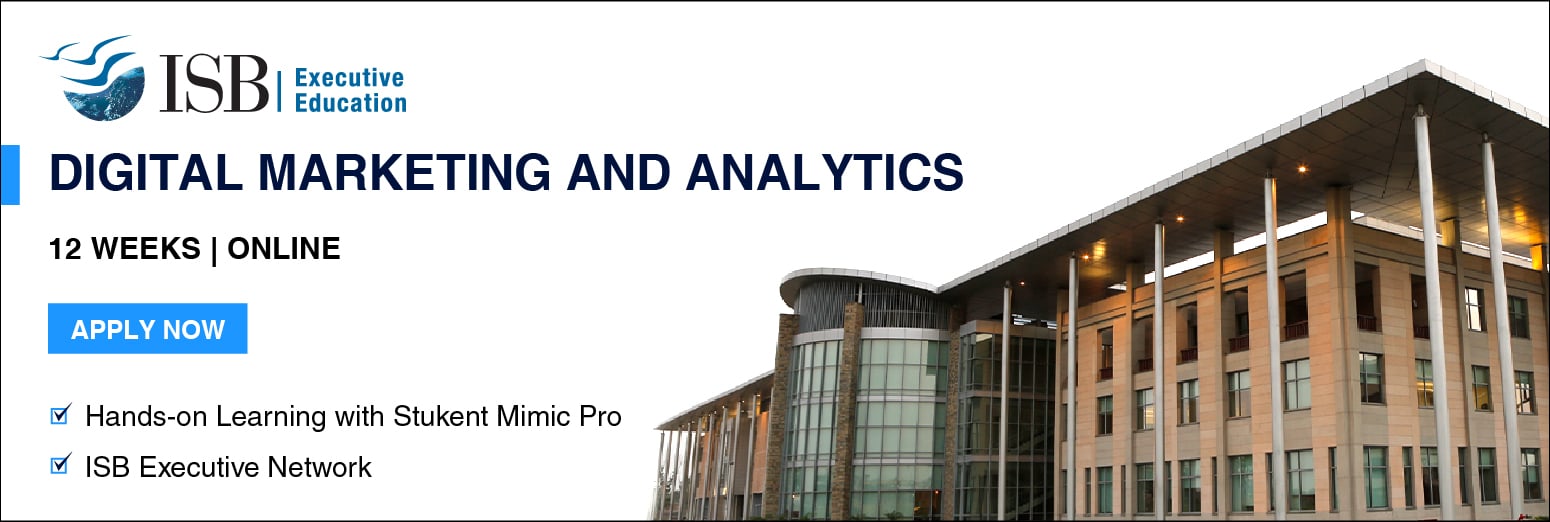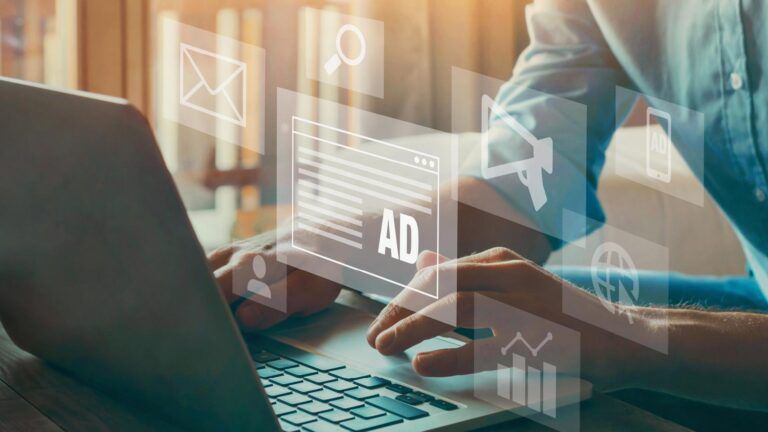What is Digital Marketing Funnel? How to Utilize It to Understanding Your Audience Better?

- What is a Digital Marketing Funnel?
- The Vital Components of the Digital Marketing Funnel
- The Top Categories of Customers in a Digital Marketing Funnel
- Why is the Digital Marketing Funnel Important?
- Traditional Marketing and Sales Funnel Vs Digital Marketing Funnel
- What are the Different Stages of the Digital Marketing Funnel?
- Effective Tips for Enhancing Customers at any Stage of Marketing Funnel
- What are the Types of Digital Marketing Funnel?
- How to Create a Digital Marketing Funnel?
- Learn New Ways to Understand Customers with Emeritus Online Courses
A digital marketing funnel is often the ‘heartbeat’ of any digital marketing campaign. It helps companies track and monitor their customer’s journeys. It also helps businesses gain deep insights into customers’ preferences, emotions, and behavior.
But how does the digital marketing funnel acquire these pieces of information about customers? How can it develop the digital marketing funnel? Well, this blog is the answer to the above questions.
What is a Digital Marketing Funnel?
A digital marketing funnel is an advertising tactic that helps companies visualize their audience’s journey from watching the ad to completing a purchase. It is also called the digital marketing and sales funnel. The marketing funnel is divided into two broad stages- pre-purchase and post-purchase. These stages monitor the customer’s journey.
The online marketing funnel also demonstrates the potential customer’s psychological state, how they reached the website, at what point of the buying process did they decide to purchase the product or service, and more. This detailed analysis helps marketers understand their audience better and helps evaluate the effectiveness of marketing strategies.
The Vital Components of the Digital Marketing Funnel
A digital marketing funnel is versatile and flexible that can be personalized based on the line of business. However, all modern funnels contain these three vital components:
The Foundation
The main aim of this component is to understand the target audience. The foundation of the marketing funnel helps companies craft their product’s unique selling point (USP) and the tone of their marketing message.
The Floodgate
As the name suggests, floodgates undertake all activities related to traffic management in a funnel. They send visitors or customers into the marketing funnel and try to convert them into loyal customers. They use digital marketing strategies like SEO, content marketing, paid ads, and others to convert the audience into potential customers.
The Actual Sales Funnel
The actual sales occur in this funnel; customers decide if they want to purchase your products or services. The main aim of this component is to understand the audience and solve their pressing problem by providing them with what they are looking for.
The Top Categories of Customers in a Digital Marketing Funnel
Every marketing funnel has different categories of customers. Here are the top categories of customers in a digital marketing funnel:
- The first category includes customers who have entered the funnel after seeing an ad.
- The second category includes customers who have seen the ad and are considering the product.
- The third category includes customers who are potential buyers. They enter the funnel to buy the product or service.
- The fourth category includes retained users, who have a long association with the company.
Why is the Digital Marketing Funnel Important?
Companies must consider creating a marketing funnel because it helps them evaluate their marketing efforts’ effectiveness. Moreover, it ensures that your marketing messages align with the needs and preferences of your target audiences. So, let’s discover more about the importance of a marketing funnel.
Enhanced Customer Experience
The information collected at each funnel stage helps businesses get closer to their customers. Companies can use information from different stages to offer a personalized customer experience.

Efficient Lead Generation
A marketing funnel is an efficient and effective lead-generation tool. Only interested leads move from one stage to the other. That means after every stage, companies will have leads that can easily turn into potential customers.
Identify Ineffective Marketing Strategies
Not all marketing strategies in a funnel are successful. Many marketing strategies fail to achieve desired results. With a marketing funnel, companies can identify and fix ineffective marketing strategies and save waste of resources. Therefore, the funnel uses data analytics to measure and evaluate the effectiveness of a marketing campaign.
Traditional Marketing and Sales Funnel Vs Digital Marketing Funnel
There is a considerable difference between traditional marketing and sales funnel and digital marketing funnel. Here’s how they are
different:
| Traditional Marketing and Sales Funnel | Digital Marketing Funnel |
| The traditional marketing funnel has fewer stages. | The digital marketing funnel has more stages compared to the traditional marketing funnel. |
| The traditional marketing funnel focuses on sales. It is highly brand focused and prioritizes revenue. | The online marketing funnel concentrates on enhancing the customer experience. It is customer focused. |
| The traditional marketing funnel demonstrates a linear customer journey. That is customers progress between stages in a defined order. | The modern marketing funnel traces a non-linear customer journey. That is users can enter the funnel at any stage. |
What are the Different Stages of the Digital Marketing Funnel?
There are four critical stages of the digital marketing funnel, they are as follows:
Stage 1- Awareness
In this stage, companies focus on creating brand awareness among the audience. Businesses use different digital marketing strategies like social media ads, SEO, content marketing, email marketing, and more to increase brand awareness.
Stage 2- Discovery
In this stage, the audience understands the company better. It is an advanced stage, where the audience and company get to know each other more. The audience gets to know more about the products company offers. On the other hand, the company gets to know the preferences, likes, and dislikes of its target customer.
The main goal of this stage is to make the customers feel more curious about the company and its products. Customers can visit their
website or social media page to learn more about the company.
Stage 3- Consideration
During this phase, the audience checks a company’s products or services. They spend more time determining if the brand is perfect for them.
Stage 4- Conversion
In the last stage, the conversion process takes place. Customers decide if they want to buy a company’s product. Usually, the conversion takes time because the customers analyze the products on different parameters like price, value added by the product, and more. However, sometimes the conversion is quicker than expected.
Effective Tips for Enhancing Customers at any Stage of Marketing Funnel
Tip 1: Provide 24/7 Assistance
In this digital age, customers are looking for personalized experiences. Use 24/7 assistance tools like FAQs, chatbots, guides, and more to provide a personalized customer experience and convert the audience into loyal customers.
Tip 2: Use Artificial Intelligence and Machine Learning (AI & ML)
With rapid digitization and automation, companies are using AI and ML-enabled machines to churn out customer data at different funnel
stages. And using this information for developing data-backed marketing campaigns.
Companies are also using AI and ML to predict user intent, draw connections between different data points associated with the user, and discover keywords for better reach.
Also Read: 10 Ways AI Technology Is Changing the Future of Digital Marketing
Tip 3: Narrow Your Audience
Another way to improve the customer experience in the marketing funnel is to narrow your audience. You can benefit more from targeting the most valuable customers. It will improve return on investment (ROI), maximize long-term and short-term success, and more.
What are the Types of Digital Marketing Funnel?
Hourglass Marketing Funnel
Well, the hourglass marketing funnel is the most popular digital marketing funnel.
This digital marketing funnel focuses on building long-lasting customer relationships. This marketing funnel consists of three broad

categories, namely:
- The awareness stage is at the top of the marketing funnel, aiming to attract the audience to purchase a product or service.
- The engagement stage is at the middle of the marketing funnel and focuses on converting the audience into loyal customers.
- The retention stage is at the bottom of the marketing funnel and concentrates on growing the user base by attracting new customers and retaining the existing ones.
The Loyalty Hoop Funnel
The loyalty hoop funnel focuses on customer engagement and retention. It believes retaining existing customers is easier than attracting new ones. Additionally, it considers retention to be cost-effective and time-consuming. The loyalty hoop funnel consists of these stages:
- Awareness: Focuses on understanding a problem
- Consideration: Concentrates on finding a solution to the problem from the previous stage
- Purchase: Marks the purchase of products or services
- Loyalty: Concentrates on increasing customer loyalty
Micro-Moments Digital Marketing Funnel
The micro-moments marketing funnel analyzes the day-to-day events that drive the customers to enter a funnel. They analyze micro-moments to understand what the user will be doing when they face one of these moments. These are the micro-moments that the marketing funnel analyzes:
- Want-to-know moment
- Want-to-do moment
- Want-to-go moment
- Want-to-buy moment
How to Create a Digital Marketing Funnel?
Here’s a Step-by-step Guide to Creating an Efficient and Powerful Digital Marketing Funnel:
Step 1: Build and Improve Brand Awareness
Brand awareness makes it easy for customers to reach any brand. Creating a unique identity for a brand in the customer’s mind will increase brand awareness.
Step 2: Identify Your Target Audience for Each Stage of the Funnel
There are different stages in a funnel and each stage attracts different audiences. Therefore, to achieve success with a digital marketing funnel, businesses need to identify the target audience for each stage. This will help in formulating stage-specific marketing strategies that will double the results.
Step 3: Define Your Marketing Goals
Business must define their marketing goals before setting up a marketing funnel. For instance, if a goal is to boost sales with paid ads and social media advertising then the marketing funnel will be different from the one that wants to attract customers using SEO and email marketing. Paid medium will focus on including digital marketing strategies that can generate quality leads.
Step 4: Set Different Conversion Rates for Each Goal
If businesses are trying to achieve multiple marketing goals, they will have to set different conversion rates to reach their desired goal. For example, they will have a funnel dedicated to getting more leads from social media, another funnel for email marketing leads, and more.
Step 5: Create Personalized Content for Each Stage of the Funnel
The next stage concentrates on creating unique marketing messages for each funnel. Since the sensibilities of the audience of each stage are different it’s important to create personalized content for each stage.
Step 6: Use Different Marketing Channels at Different Funnel Stages
There are different marketing strategies that businesses can choose from for different stages. They can choose SEO, SEM, PPC, social media ads, and more based on their audience and marketing objective.
Step 7: Measure the Results
The last step of the marketing funnel is measuring the results of a funnel. For instance, the number of people who engaged with you online versus people engaged after the ad. This way businesses can determine the engagement rate and success of a marketing funnel in attracting customers.
Following these steps, businesses can create a powerful and effective digital marketing funnel that helps them understand their audience better.
Learn New Ways to Understand Customers with Emeritus Online Courses
If you are looking at new avenues to reach your target audience, take up Emeritus’ digital marketing courses. These courses will help you understand the modern customer better and how they make buying decisions.
Emeritus’ learning programs are designed for freshers and experienced professionals to enhance their knowledge on the know-how of the digital marketing industry and polish their skills.






